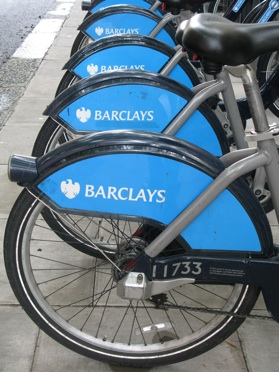‘SAVIOUR BANKS’ SAVED BY THE PEOPLE

It’s Wednesday, 17 September 2008. Politicians and regulators in London frantically try to quell fallout from the global banking and financial meltdown.
A badly indebted Halifax Bank of Scotland group willingly sells itself to Lloyds TSB for £12 billion. But soon Lloyds itself will face peril.
City and Canary Wharf banks borrowing from other banks face record charges. Non-financial companies, or ‘corporates’, cannot get short-term credit. Woolworths, a revered UK ‘High Street’ chain, begins a terminal slide towards administration, along with furniture giant MFI.
Iceland worry
Failing Icelandic bank Landsbanki worries 300,000 UK individuals and local authority pension funds. They invested in the bank’s high-interest accounts.
Kaupthing, another Icelandic bank exposed to bad debt, also holds significant UK deposits. And, many London taxi drivers pay for their famous black cabs with Kaupthing loans.
UK investors fear they could lose their money if the Iceland government renationalises these globally indebted banks, or if havoc-wreaked Iceland suffers a potential ‘country bankruptcy’.
US bailout
Attention switches to Washington on 19 September. Investment banks had gloated for decades about their ability to combine risk, liability and stability. But excessive risk-taking in securitised markets and a greedy bonus culture fuelled bank instability.
‘Free market’ ideology evaporates. Imperilled banks cite their ‘too big to fail’ status. The world economy is in full crisis.
The US Treasury and Federal Reserve agree to buy investment banks’ bad debts, a move agreed by free market ideologue President George Walker Bush. Bankers’ risk, liability and stability gloat is exposed as a great modern age myth. Indeed, politicians allow bankers to now shift liability for their failure.
The American taxpayer is now on the hook for a massive $700 billion.
Worried investors
The 19 September taxpayers’ injection rallies corporate share prices. London’s Financial Times Stock Exchange stock index of 100 top companies rises 8.8%, a daily record.
But as October matures, UK banks find it harder still to get cheaper inter-bank credit. UK bank share price values tumble. Worried UK investors switch millions to Irish banks now controversially guaranteed by Ireland’s government; guarantees that enrage Ireland’s fellow Euro currency union members.
On 8 October, UK Prime Minister Gordon Brown and Chancellor Alistair Darling cluster journalists in a Downing Street basement. Brown and Darling say the government will spend £50 billion of taxpayers’ money to take a stake in seven major banks. Another huge £400bn of taxpayers’ money will ‘semi-permanently’ guarantee bank loans.

Royal Bank of Scotland
The Royal Bank of Scotland used to be medium-sized before Fred Goodwin and colleagues mutated the Edinburgh bank into an international leviathan. RBS loans and investments were £2 trillion, 50 times more than its equity and capital in 2008. Then RBS ran out of money.
Darling recalls RBS telling him the bank’s tills and cash machine would be empty in two hours. RBS shares tumbled. RBS chairman Sir Tom McKillop, the government’s ‘favourite banker’, phoned Darling. “He told me that his bank is going to bust this afternoon,” recalls Darling. “And he asked me what were we going to do.” *
Part-nationalisation
The banks seek the bailout but not the government stake in their business. Later, the UK government spends £37bn to own 60% of the Royal Bank of Scotland and 40% of the Lloyds/HBOS combo. RBS and HBOS chiefs are later sacked in this part-nationalisation.
Elsewhere, the government uses UK anti-terrorist law to try and get back UK investors’ money in Icelandic banks. Barclays opts to sell part of itself to Qatar and Abu Dhabi financial conglomerates.
Who pays?
Banking meltdown means tax revenues are dwindling fast. The government has to borrow and raise the national debt. Ordinary people – taxpayers – will have to repay this debt. And many Londoners on average and low incomes will experience years of intensified hardship and human damage.
The people have saved the banks. So will the banks repay taxpayers their bailout money, and will the bankers who created the crisis be called to account?
* Back from the Brink by Alistair Darling
© Paul Coleman LONDON INTELLIGENCE 2012